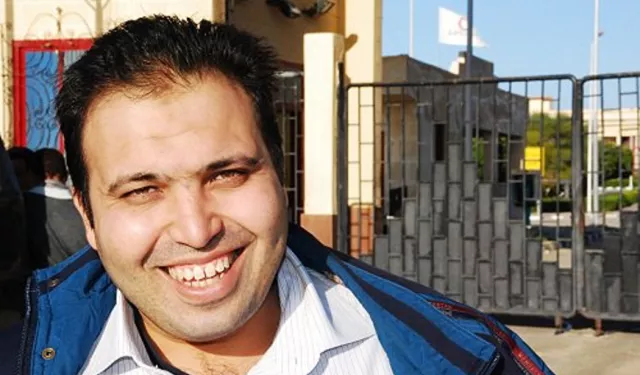Egypt’s prison authority has refused to accept a request for Mohamed El-Qassas, the detained deputy head of the Strong Egypt Party, to make an emergency humanitarian visit to his mother, who is reportedly in critical condition and unable to move.
El-Qassas has been held in pretrial and then continued detention since 2018 in connection with a case brought before the emergency state security court. His wife, Iman El-Baddiny, posted to Facebook Monday that the Community Protection Sector—formerly the Prisons Authority—declined to receive her written appeal requesting the visit.
“I submitted the request two weeks ago, or tried to, as they refused to even take it,” she wrote. “Mohamed has been detained since 2018 and his mother has been too ill to visit him all this time. Now her condition has worsened to the point that she’s nearly immobilized.”
Iman attached the full text of the appeal addressed to the interior minister and the head of the Community Protection Sector. The letter read, “We kindly request a humanitarian exit permit (on official escort) for inmate Mohamed Ali Ibrahim El-Qassas to visit his mother, whose condition has reached a critical stage.”
The appeal emphasized that El-Qassas’s mother has not seen her son since his arrest more than seven years ago, due to her inability to travel or be moved by ambulance. It described her deteriorating condition in detail. His mother is experiencing advanced rheumatoid arthritis, pelvic and spinal erosion, near-complete left-side immobility, pressure ulcers, and persistent high fever.
“Given the exceptional and urgent nature of this humanitarian situation,” the request continued, “we appeal to your sense of compassion and ask you to approve this supervised emergency visit, under the terms you see fit.”
Iman said her husband became aware of his mother’s worsening condition during a family visit last Thursday. “He told me then that he had submitted a similar request from inside the prison,” she added.
Describing her frustration, she wrote: “Mohamed’s mother is in a terrible physical and emotional state. His absence has lasted far too long. He should be by her side now, caring for her. Instead, no one knows why he’s still imprisoned after eight years, or why she’s denied his presence when she needs him most.”
“I feel it’s absurd that I’m not even asking for his release, just a visit,” she added. “But maybe it’s still worth asking: Can Mohamed see his mother? Can he be there for her now?”
El-Qassas was arrested on Feb. 8, 2018, while returning from a friend’s wedding, according to the Egyptian Initiative for Personal Rights. He faced charges of “belonging to the Muslim Brotherhood” and “promoting terrorist ideology.”
On May 29, 2022, the Emergency State Security Court sentenced presidential hopeful and Strong Egypt Party leader Abdel Moneim Aboul Fotouh to 15 years in prison, and El-Qassas to 10 years, in a non-appealable verdict under Case No. 1059/2021.
EIPR confirmed that El-Qassas had spent four and a half years in pretrial detention before the case went to trial. During that time, he was investigated under four separate cases.
Each time a release order was issued, it was never implemented. Instead, he was rotated to a new but nearly identical case, keeping him in continuous detention.
